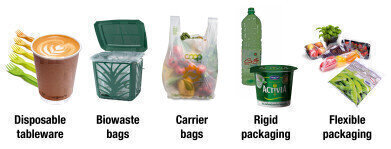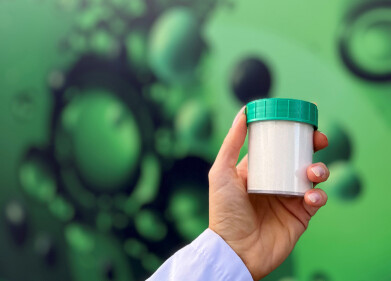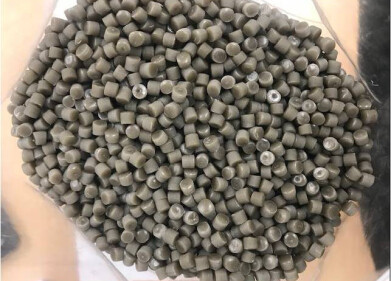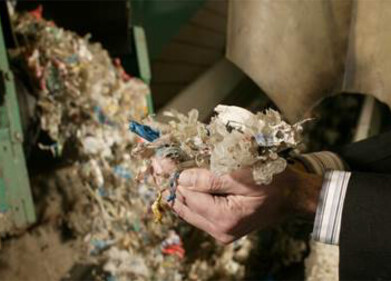Waste Management
Compostable Plastic Bags Carry Goods and Hopes for the Future
Apr 14 2016
nova-Institute (Germany) publishes the first comprehensive market study on the consumption of biodegradable and compostable plastic products in Europe: 100,000 tonnes in 2015, market demand could grow to beyond 300,000 tonnes in 2020.
Compostable plastic bags dominate the market for biodegradable plastics in Europe. They not only carry goods and biowaste but also the hopes of the bioplastics industry for huge markets in years to come. The legal framework and composting infrastructure of EU member states were found to be either the bottleneck or the key driver for market development. These are some of the main findings by the expert team at nova-Institute who researched the European market demand for biodegradable polymers by country as well as application, and analysed framework conditions in detail. The market of compostable and biodegradable plastic products grew to 100,000 tonnes in 2015, and could grow to beyond 300,000 tonnes in 2020 – if the legal framework were to be set more favourably.
The study “Consumption of biodegradable and compostable plastic products in Europe” found that about two thirds of all products on the market are compostable bags, mainly used for shopping or the collection of biowaste. All other sectors show a wide variety of different products but most of them are still small in volume. "It was amazing to see that businesses have found a real market and product focus" says Michael Carus, Managing Director of the German nova-Institute, "The value proposition for biodegradable polymers has become much clearer now". The research team analysed the consumption of biodegradable polymers such as PLA- or starch-based plastics by application, geography and polymer type.
An in-depth analysis of markets, along with policies and current legislation was carried out for Austria, Belgium, France, Germany, the UK, Italy, the Netherlands, Spain, Switzerland and the Scandinavian countries. "We were surprised that policies and legislation have such a strong impact on market development today" author of the study and chief-analyst Harald Kaeb explains. In 2015 Europe enacted legislation to reduce the number of single-use carrier bags. Italy, for example, was the first country to encourage compostable plastic bags. Legislation does not only affect shopping bags but also other types of plastic bags. Implementation of bag reduction measures by EU member states could also promote innovations in the area of bio-based and biodegradable plastics. Projections on market growth by 2020 were found to be heavily dependent on what policy scenario will be applied.
Italy has become the geographical market leader due to "bagislation", whereas German markets have been seriously hampered by an unfavourable legislation on biowaste. Markets react sensitively to the framework conditions in each country, as shown by volumes and types of product.
Disposable, short-life products marketed as waste management solutions and made of compostable polyester films are today’s bestsellers. nova researchers also found that a variety of bio-based PLA cups and containers used for service and retail packaging are sold in significant volumes. PLA is used for a broad spectrum of applications, ranging from non-woven fibre products or apparel, to beverage bottles and packaging foams. Starch-based materials are also pushing into new markets as, for example, coffee capsules or auxiliaries in aquaculture. Functional products such as barrier packaging and various biodegradable outdoor uses are low volume today but have a significant potential for market breakthrough. Several types of polyesters build the core of the biodegradable polymers market. These could also provide the increased health- and safety-related benefits consumers are asking for in applications such as toys and other children’s goods.
With suitable and solid European standards for compostability and biodegradability and a more favourable legal framework, the demand in Europe can grow to more than 300,000 t in 2020. Incentives to avoid non-biodegradable microplastics in the environment and for strengthening the Circular Economy could work as additional drivers for increasing demand.
The commercial study has more than 200 PowerPoint® slides of well-structured market and company data, case studies and a feature on biodegradation and composting. It also contains about 100 slides of additional EU policy and legislation review and analysis.
Events
Nov 26 2024 Paris, France
Nov 27 2024 Istanbul, Turkey
H2O Accadueo International Water Exhibition
Nov 27 2024 Bari, Italy
Biogas Convention & Trade Fair 2024
Nov 27 2024 Hanover, Germany
Dec 11 2024 Shanghai, China







-as-feedstock.jpg)






